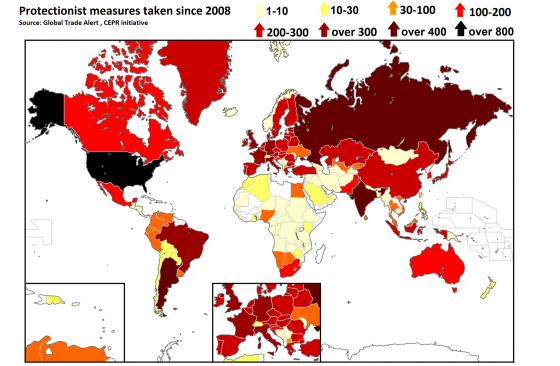The rise of nationalism – how can businesses adapt?
We have seen tectonic shifts in our society over the past 18 months. All the signs currently suggest that we’re moving towards a more inward-looking society as nationalism, sovereignty and protectionism begin to dominate the global news agenda. Every day there are new developments, with the latest being that President Trump is pulling out of a trade deal - the Trans-Pacific Partnership (TPP). While some may claim this isn’t significant as the treaty wasn’t ratified, it’s the signal of intent that counts.
This shift in how some of the world’s superpowers are operating is presenting new communication challenges for businesses. In particular, multinational organisations that operate across multiple borders may have to rethink their communication strategies. Traditionally, regional marketing departments of multinationals have always focused on themes such as ‘alignment’ and ‘harmonisation’ across the markets in which they operate. For instance, many US companies have kept the same values, perspective and tone of voice when expanding into Europe. Will this kind of behaviour become more challenging in a more nationalistic and divided world?
Aside from this rise of nationalism, the second issue that multinationals face is communicating to deeply divided audiences within the same nation or state. The US is deeply divided over president Trump, and the UK is almost as divided over Brexit. According to a YouGov poll, only a quarter of 18-25 year olds in the UK voted for Britain to leave the EU, while 61% of people over 65 years were for Brexit.
Around the world, organisations are presented with the problem of having to embrace globalisation and hyper-connectivity, whilst at the same time, acknowledge the rise of nationalism.
Globalisation fits well with multinationals and the corporate world. However, digitisation doesn’t sit so well with this notion of ‘national identity.’ Branding isn’t confined to geographical borders, and the nature of communications and digital means that we cannot create something that is merely ‘national’ anymore.
Instead, business must look to engage all of their audiences through authenticity. The societal changes that we’re witnessing globally are due to dissatisfaction of the status quo. In light of the financial crisis and perceived lack of corporate social responsibility, there is anger amongst many people. People are losing trust in multinational organisations.
The rise of Donald Trump to US president revealed the case for authentic communications. Trump may be extreme in his beliefs, be he spoke simply and plainly, directly addressing his audience. It’s early days, but he also appears to be delivering on the promises he set out. In contrast, Hilary Clinton had far more rational views, but was inconsistent in her policies. Jeremy Paxman referred to her as a ‘washboard politician’ - changing her beliefs according to what she thought would get her the most votes.
Good public relations used to be about saying the right thing at the right time, but in 2017, it’s about repeated and continuous ethical behaviour. A robust CSR strategy isn’t enough anymore, organisations must leave a positive footprint in the communities, industries and societies in which they operate.
Businesses must also be aware of the power of their own employees in authentic communication. The general public have, and always will, trust the views of the mass workforce. If employees can be motivated to transmit the values of their organisations in a powerful and simple way, it will help rebuild the trust deficit, even in a nationalistic, protectionist society.




Comments